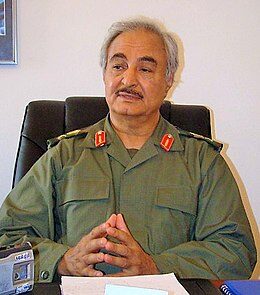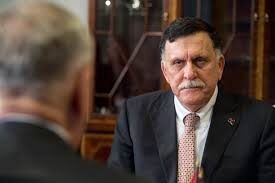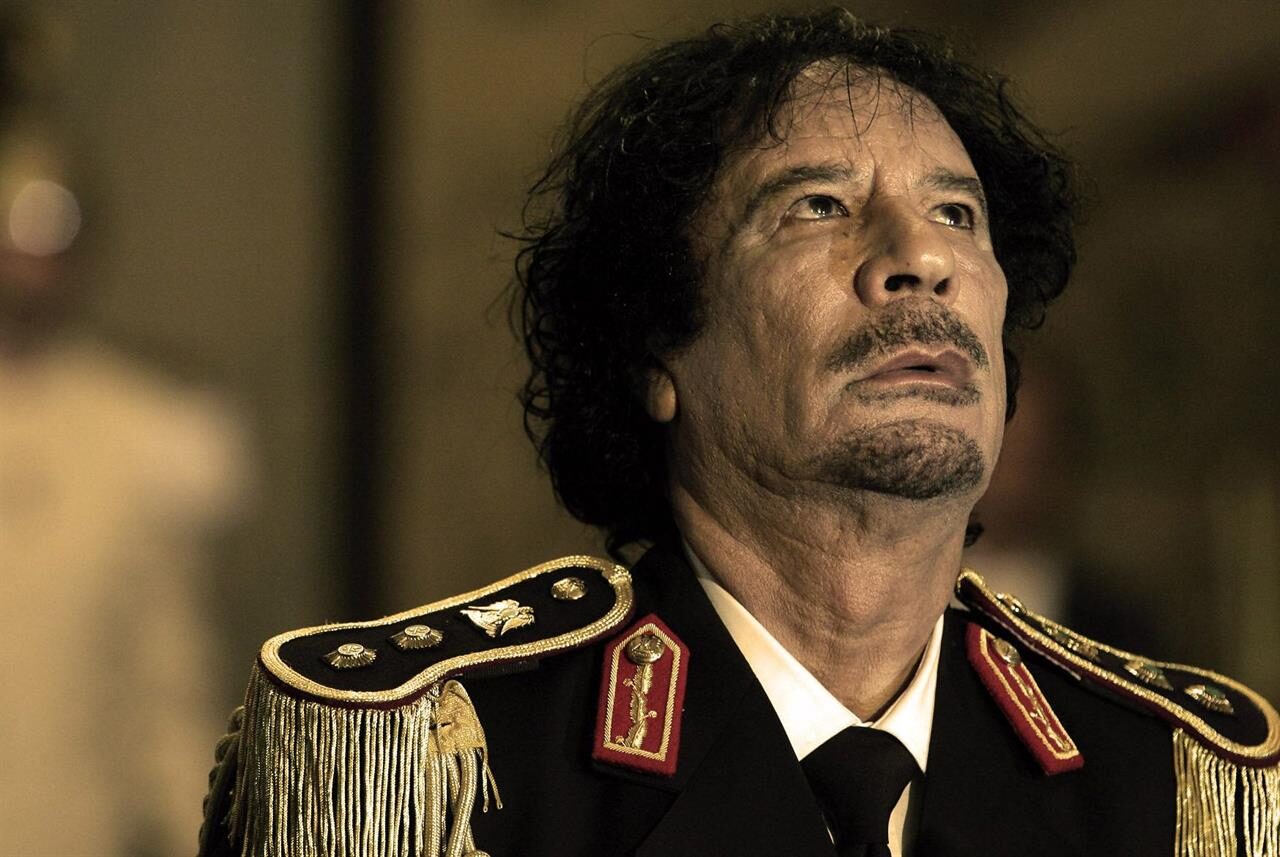BEHIND HAFTAR’S OFFENSIVE

General Khalifa Haftar
It was clear that setting a negotiating table between Khalifa Haftar and Fayez al Sarraj in Abu Dhabi, a country that has a neutral stance in the Lybian crisis, wouldn’t have produced substantial results. On the contrary, that it would have fueled, especially in one of the contenders – Haftar – the perception of being supported in his military desires. Indeed, behind the attempt to conquer Tripoli there is the unconditional backing of the United Arab Emirates – which have already provided general aerial support – and the ‘long arm’ of Saudi Arabia, which has an opportunity to oppose Qatar, a supporter of the Misurata militia, of the Islamic militias of the Tripolitania region and of Sarraj himself. The Saudis are alleged to have given the general money to pay his army. Khalifa Haftar did not go to Riyadh on March 28 to meet king Salman for nothing. Word has it that the Saudis promised the general that a number of Salafite militias from Tripoli would have embraced his cause; the militias of the Madakhala Wahabi movement. Something that didn’t occur as far as we know. But the question lingers: isn’t the Fayez al Sarraj government recognized by the international community and certified by the UN Security Council? If it is, and it is, why are other nations backing Haftar in various ways, fueling his desire to conquer the country militarily?
The guilty, the liars, the inept
Although the UAE and Saudi Arabia are the main culprits of the latest offensive to conquer Tripoli, other countries have also been behaving improperly: on the one side, officially speaking, these countries back negotiations to achieve peace in Libya; on the other, they support the side that appears momentarily stronger militarily speaking: Khalifa Haftar. It is the case with France, which has its special corps in Cyrenaica. There are French military counselors that support Haftar’s army even in this latest offensive, as we write. Denials of the circumstance by the French ambassador in Tripoli are but a part of a diplomatic game made of lies. In Paris they claim that French special corps are in Libya to fight terrorism, not to aid Haftar. But in the hours preceding the attack, a delegation headed by Haftar’s son was on board a Falcon jet provided by French authorities which traveled to Paris to secure French backing for the military operation against Tripoli. Despite the secrecy, the French blanket is visibly short: they went so far as to block a declaration of the European Union to condemn the military offensive launched by Haftar. The purported reason for the their veto was that the accusations against the Libyan general were too harsh. Even Russia – officially speaking – condemns the advance of Haftar’s troops towards Tripoli, although it would gain a strategic edge from a rise of Haftar to power – it seems that Russia were promised permission to use a naval base in Libya if Haftar were to win. Russian officials are present today in both the harbors of Tobruk and Derna. If Moscow really wanted to halt the advance of Haftar, they could easily tell the 300-or-so Russian mercenaries of the Wagner group to stop fighting alongside the general’s militias. These Russians are formally known as contractors, former soldiers with preceding military experience in the Russian army that fight for money. These mercenaries have connections in the Russian intelligence. They are mercenaries, but will not fight without the informal approval of the Russian secret services. In substance, the Russian government uses them for dirty jobs unfit for the official army. Russia is also to blame for giving Haftar weapons such as tanks and artillery, and for giving him assistance with Muhammar Ghaddafi’s old arsenal. To top it all, Russia also blocked a resolution of the UN Security Council asking Haftar to halt his advance on Tripoli. The general was then summoned to Moscow and informally told to slow down. The United States also had special ops in Libya, but these were later withdrawn. Truth be told, the words of the Secretary of State Mike Pompeo against Haftar’s offensive were among the harshest. Then again, if the general was to conquer power it would not be a defeat for the US, since Haftar has been for a long time (and perhaps is still) on the CIA’s payroll. What the US don’t like is the relationship between Haftar and Russia. To have a man so close to Moscow at the helm in Libya is something that Washington is uncomfortable with. While withdrawing its troops from Libya, the US sent a fleet headed by aircraft carrier Abraham Lincoln in the Mediterranean off the coasts of Libya. Just a reminder that any solution to the crisis would have to be approved in Washington. It seems incredible that Khalifa Haftar would embark in a military operation which requires a lengthy preparation and would succeed in obtaining the unconditional support of the UAE and Saudi Arabia (both close allies of the US in the Middle East) without anybody (the CIA especially) taking notice. Perhaps the US initially decided to let things play out and see what happened before they noticed an escalation in the civil war and had to officially condemn Haftar’s attack. What about Italy, the country which – more than any other – could lose out from Haftar’s war, since they back Fayez al Sarraj unconditionally? Rome has soldiers deployed in a Misurata hospital and others providing assistance to the Coast Guard in Tripoli. They have a deputy director of the AISE (Italian secret service), general Giovanni Caravelli, who is in touch with Haftar but who doesn’t understand the intentions of the Libyan general – or perhaps he just can’t find a way to convince or oppose him. Caravelli was in Libya hours before the attack. The purpose of such a privileged contact with the general is obscure, as it doesn’t seem to produce any results. In the past, Caravelli had obtained modest results as head of the military division of the Italian secret services and was responsible for his men amid the Italian contingents abroad. Then he left the secret service – or rather he was told to leave – only to reappear and be handed such a prestigious and delicate task such as convincing Haftar. The results are modest once again.
Perhaps amid all the lies, the most proper behavior was that of Egypt, which notoriously supports Khalifa Haftar and hasn’t denied or tried to dissociate itself from his actions. On the other hand, Egypt officially stressed their backing of the general during his latest visit to the Cairo. Abdel Fattah Al Sisi gave Haftar weapons and dispatched military counselors to Libya.

Fayez al Sarraj
A clue There was a clue that gave away Haftar’s belligerent intentions. In the weeks before the start of the offensive, his son Saddam brokered a power-sharing deal with the authorities in Misurata. The general was willing to accept an interim Prime Minister backed by Misurata in order to have their militias on his side. Alas, his mission failed because the parties did not sufficiently trust one-another. Khalifa Haftar was trying to use Misurata’s dislike for Fayez al Sarraj. Even then, siding with Haftar was too much for them to endure. Out of the groups operating in the Tripolitania, the Misurata militia are the most efficient and the ones that Haftar fears most. These are the same units that fought against Ghaddafi and that defeated the ISIS in the area near Sirte.
Haftar’s army
It is difficult to measure Haftar’s military power today, partly because there are numerous militias that are at the window waiting to see the outcome of the military clash before siding with the winner. Even the units fighting for Haftar have their own agenda. On paper, Khalifa Haftar has 10.000 men, a lot more than Sarraj can deploy. The so-called Libyan National Army uses Sudanese mercenaries from Darfur, from Chad and tribal militias that were once close to Ghaddafi in addition to the 2000/2500 fighters from Zintan’s Tarhuna Brigade, a Tuareg militia. His airforce is mostly comprised of Russian airplanes used by Gheddafi in addition to other airplanes provided by the UAE and Egypt. A total of 25-27 airplanes (of which only about 10 are working, thanks to the help of Russian technicians). The Emirates also provided a drone for reconnaissance.
The general’s intentions
Haftar’s military escalation occurred just as the UN was staging the umpteenth peace conference in Ghadames. Again, the timing of his attack confirms his intentions: to take power by force and to become the novel Ghaddafi. The numerous peace conferences (Skhirat, Paris, Palermo) were just a waste of time for the general. Haftar would have sat at the negotiating table only if he could have achieved supremacy through diplomacy. During the initial negotiations, the general insisted that he be placed at the head of the Armed forces and of the Ministry of Defense so that he could administer the military forces. The first step for assuming total power.
Finally Khalifa Haftar chose to openly take power by force, possibly in virtue of the circumstances which he perceived as being favorable. The ease with which he conquered the oil fields and the country’s southern provinces fueled his sense of invincibility. Certainly the help that he received from abroad heightened his sense of impunity.

Muhammar Gheddafi
What about the negotiations? Unfortunately Libya is not only facing tribal rivalry, the renown hostility between the Tripolitania and Cyrenaica provinces, the insurgence of Islamic extremism and terrorism, the criminal gangs that roam the country and the feud between the Tebu and the Tuareg, but it also owes a tribute to the aims of foreign nations. It is clear from the numerous visits by ambassadors of Haftar and Sarraj in Qatar, Russia, France, Turkey, to name a few. This interest is explained by Libya’s strategic placement in the Mediterranean and by its vast oil fields. But it must also be said that democracy finds no room in Libyan social culture. Notwithstanding the outcome of Haftar’s offensive, the result will always be that one individual will prevail over all the others. So why negotiate? Maybe to avert the possibility of a bloodbath in the process, which would trigger other feuds and other vengeances. It’s more of a practical issue rather than an attempt at democracy in a country that never practiced it.

